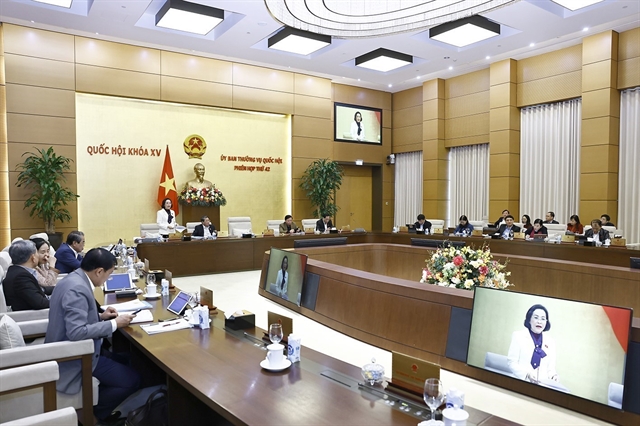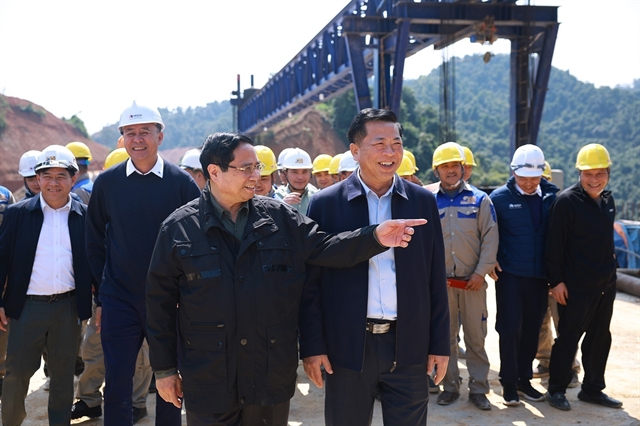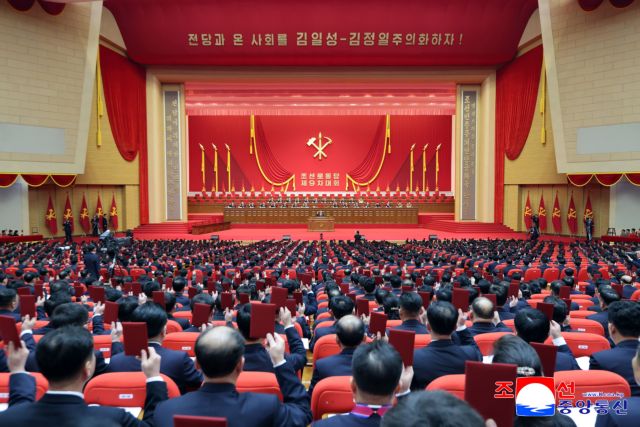 Society
Society

 |
| The National Assembly Standing Committee meeting on Friday. VNA/VNS Photo Doãn Tấn |
HÀ NỘI — The National Assembly Standing Committee continued discussions on the draft Law on Teachers in its 42nd session on Friday, focusing on policies regarding teacher retirement age, salaries, recruitment and professional development.
One of the key issues debated was the extension of the retirement age for teachers. Some committee members emphasised the need for clear regulations to determine which educators would be eligible for extended employment. The committee proposed that teachers with high academic qualifications or expertise in specialised fields should be allowed to work beyond the standard retirement age to address shortages in crucial areas.
However, this policy would apply only to teachers in good health who are willing to extend their employment and who meet institutional requirements. The draft law also stipulates that during this extended period, public school teachers will not hold leadership positions or retain related allowances.
Another major point of discussion was funding for teacher training and professional development. The drafting agency suggested that the state budget fully cover mandatory training costs for both public and private school teachers. However, concerns were raised about the financial feasibility of this approach. Some legislators noted that the state budget could not support training for all teachers across different education levels.
Two policy options were proposed: one in which the state fully funds all mandatory training, and another in which public school teachers follow the existing Law on Public Employees, while non-public school teachers receive partial state support. The Government would be responsible for setting detailed regulations under either scenario.
Salary policies were also scrutinised. The draft law originally included a provision to grant newly recruited teachers an additional salary grade, but this was removed to align with broader salary reform plans. Instead, the law proposes that teachers receive the highest salaries within the public sector’s administrative pay scale.
The committee also debated ethical standards for teachers. Some legislators recommended renaming the section as 'Regulations on Teacher Ethics' to ensure clarity and avoid academic debates over the definition of ethics.
Authority for teacher recruitment emerged as another contentious topic. The draft law currently expands recruitment powers to both school leaders and educational management agencies. However, this differs from the Law on Public Employees, which grants hiring authority only to heads of public institutions.
Some committee members questioned whether the proposed change would provide more flexibility for schools or impose additional constraints. Concerns were also raised about how teacher transfers and reassignments would be managed if schools had greater recruitment autonomy.
Additionally, legislators called for more targeted policies to attract teachers to remote areas populated by ethnic groups, particularly educators specialising in indigenous languages.
As discussions continue, the National Assembly aims to finalise the Law on Teachers with policies that ensure educational quality while balancing financial sustainability and administrative efficiency. — VNS

.jpg)


